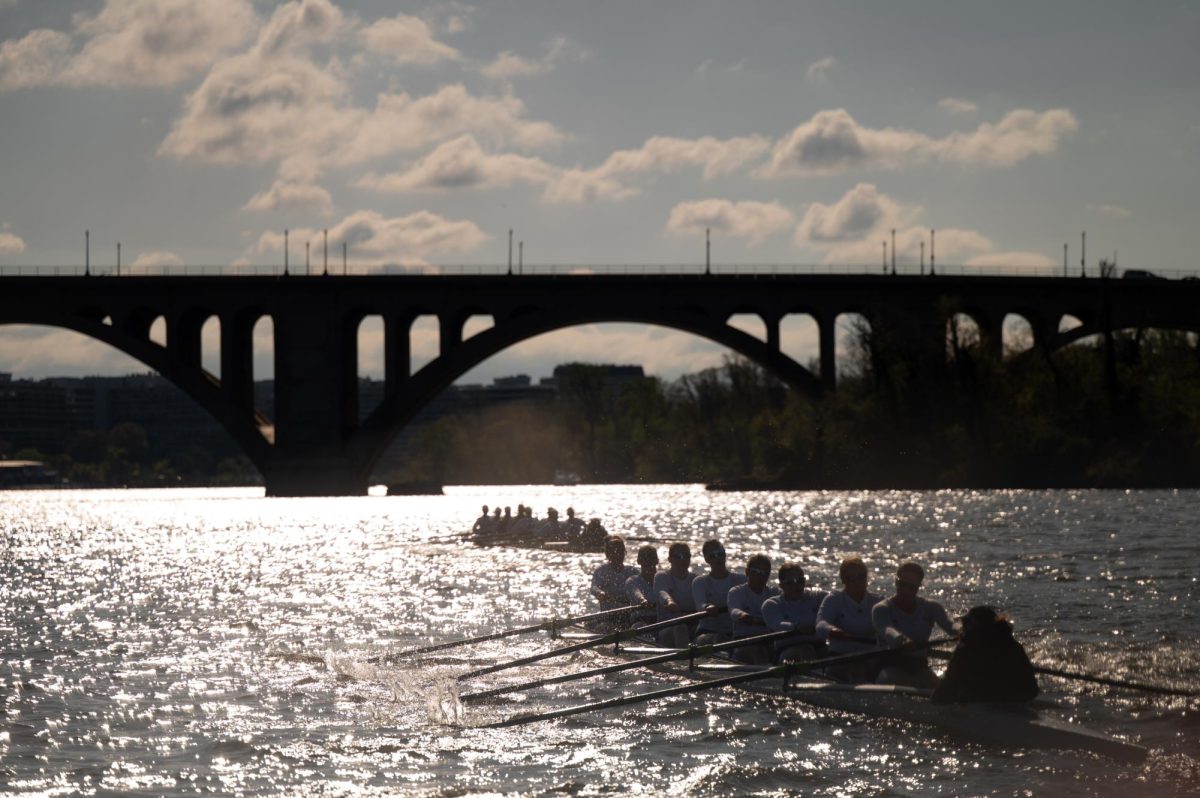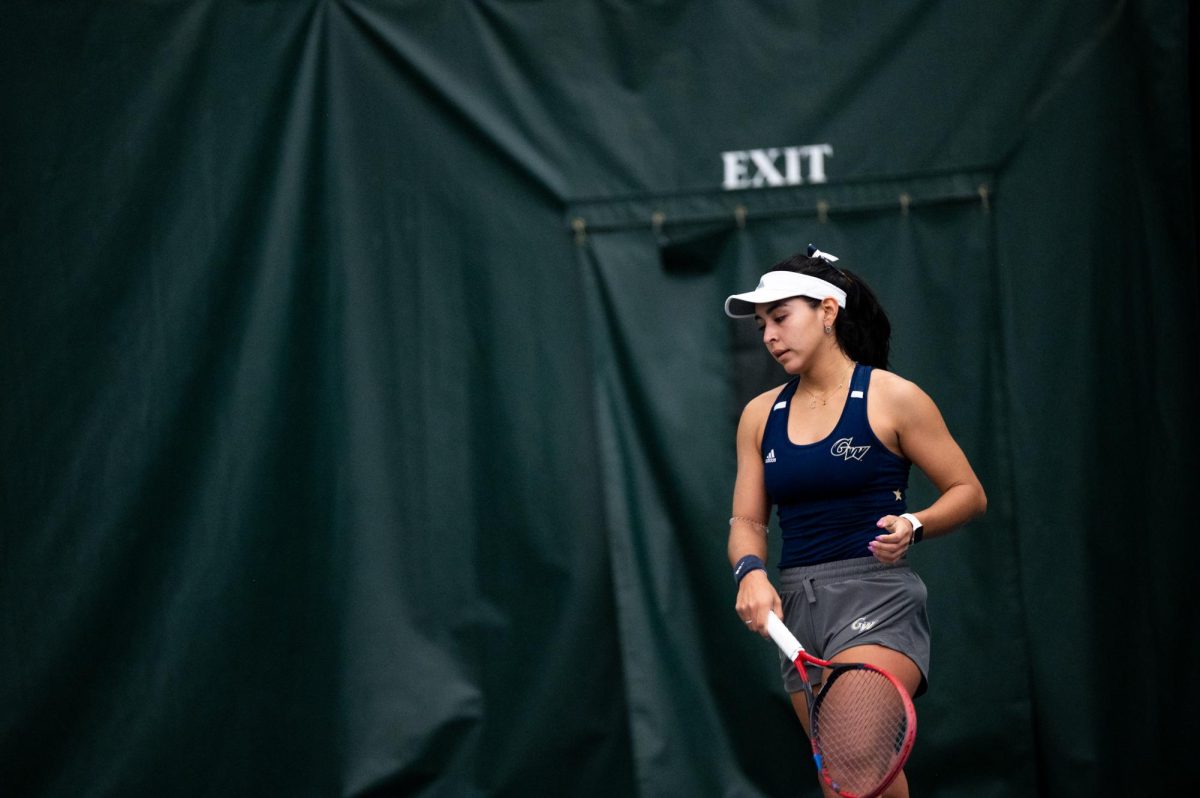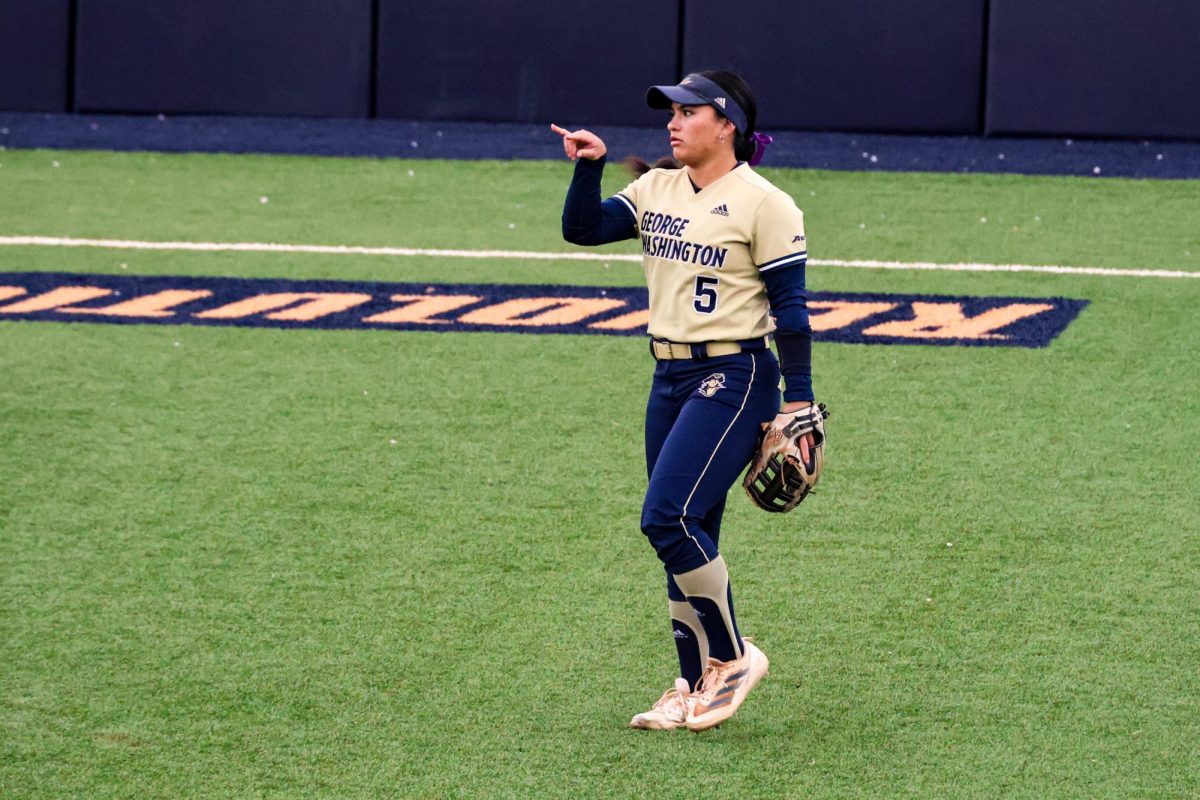Overachieve (verb): to achieve success over and above the standard or expected level.
During Karl Hobbs’ nine years as head men’s basketball coach, that word has become synonymous with what has been dubbed “Hobbs-speak,” a set of words and phrases the coach resorts to during every interview. During the team’s 2005-2006, Hobbs said the team “overachieved.” Ditto for the next season, which was less successful, but still resulted in a fortuitous Atlantic 10 tournament championship.
This year, however, the phrase had not been used by Hobbs, and rightly so. But during an otherwise informative post-game interview with the media Saturday after the Colonials’ win at Richmond, Hobbs was asked what it would mean to him if his team finished 12th in the 14-team A-10 and subsequently qualified for the conference tournament.
“(Making the A-10 tournament) would be an overachievement considering that you have to understand that the program was shaken, I mean, really literally rebuilding the foundation and doing it under some tough circumstances,” he said. “When I first came here to GW, there weren’t expectations. Mike Hall and Pops (Mensah-Bonsu) and those guys, they were allowed to grow and become a better basketball team. These guys don’t have that luxury because of the expectations. “
The earthquake that “shook the program to its very core,” Hobbs said, was a disastrous December trip to Hawaii, which saw the team lose in embarrassing fashion. But Hobbs can’t really think that finishing 12th is “over and above the expected level” of GW’s men’s basketball program, can he? Just as he can’t actually believe himself when he calls his upperclassmen-heavy team “young” and “inexperienced”?
Whether or not Hobbs was responsible for the events that led to the program falling apart, he should expect his relatively talented team to avoid finishing in the bottom two of a conference in an off-year as a whole. If he doesn’t, how can his players? And saying the team is achieving above expectations (if they qualify for A-10s) is akin to patting himself on the back for a job well-done. Few would agree with that evaluation.
In his defense, another recent pet phrase of Hobbs’ has turned out to be accurate and borderline prescient. Amid the Colonials’ midseason 11-game losing streak, Hobbs began saying variations of “Anytime you’re rebuilding a program, you have to first teach them how to compete. The most difficult part is teaching them how to win.”
In fact, the season has played out exactly that way. With some exceptions, the team has shown gradual progress since the trip to Hawaii. Eventually, it started to be competitive, losing close games to decent teams like Rhode Island and Dayton. Then it beat a mediocre, inconsistent team like Charlotte in a close overtime game at home, and Saturday it finally beat a quality team on the road. Part of the responsibility for the close losses falls on Hobbs, but he, too, has shown progress and managed the team more deftly recently.
If that had been the case the entire season and GW was a mid-level team in the A-10, maybe Hobbs could have rightly said the Colonials overachieved. But the bar has to be set higher than 12th place if Hobbs ever hopes to make a return appearance to the NCAA tournament during his time in Foggy Bottom.







